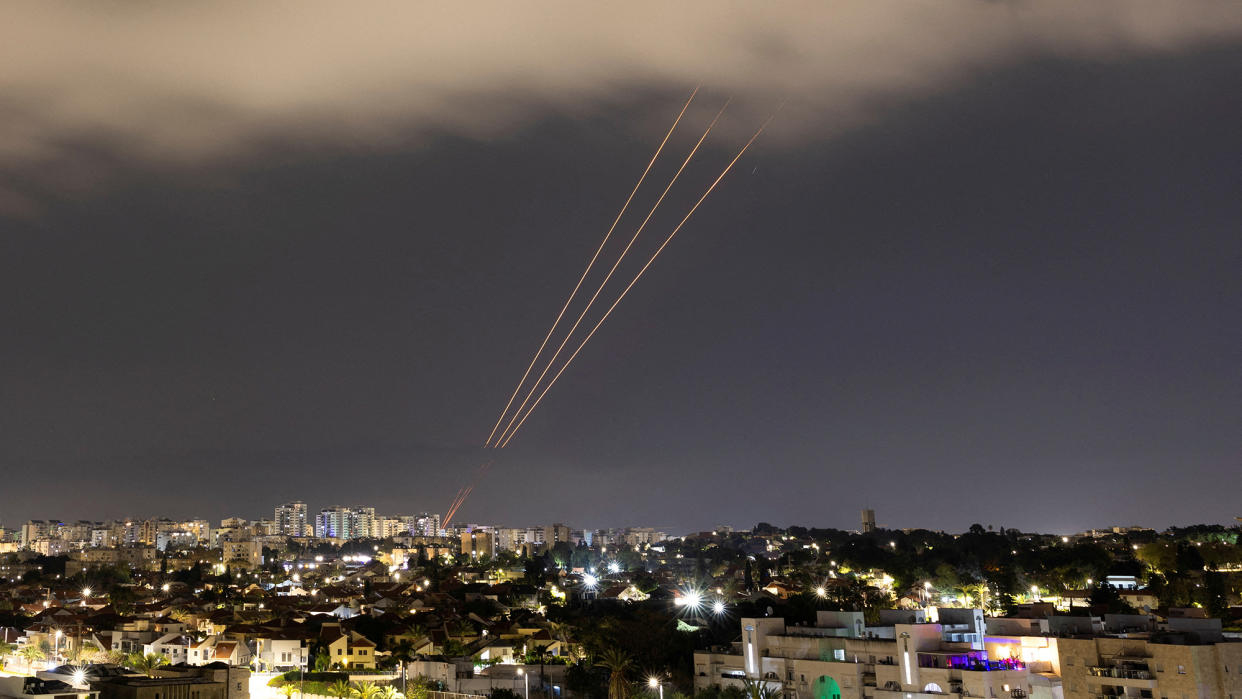How will Israel respond to Iran's direct attack?

- Oops!Something went wrong.Please try again later.
What happened
Israel's War Cabinet met late Sunday but did not decide how Israel should respond to Iran's Saturday attack. Israeli air defenses and U.S., British, French and Arab military assets shot down 99% of the more than 300 drones and missiles Iran fired at Israel. The strike, Iran's first direct attack on Israel after decades of shadow war, caused minor damage at an Israeli airbase and seriously injured a Bedouin girl, Israeli officials said.
Who said what
"We will build a regional coalition and collect the price from Iran, in the way and at the time that suits us," said Benny Gantz, one of three voting War Cabinet members. President Joe Biden told Israeli Prime Minister Benjamin Netanyahu the U.S. won't participate in a retaliatory strike and said Israel's "spectacular" success in thwarting Iran's attack created "space and flexibility" to "slow things down and think through" the best response, a senior White House adviser said Sunday.
The commentary
For Israel, "striking back hard on Iranian soil could invite far more devastating retaliation" and fracture its new anti-Iran regional coalition, The Wall Street Journal said. "But not responding at all, or too weakly, could also erode deterrence," leaving Israel "vulnerable to future Iranian barrages."
What next?
If Israel heeds "Biden's advice not to hit back, the Middle East might be able to take a breath," said Jeremy Bowen at the BBC. The U.S. expects "Israel to respond in some fashion," Politico said, but it's urging "a limited response as opposed to an all-out armed counterattack."

